The Volunteer Program for UkraineStudent volunteers report on activities in Poland
The first two 15-member groups of Japanese university student volunteers participating in The Volunteer Program for Ukraine, a joint project being operated by The Nippon Foundation and The Nippon Foundation Volunteer Center, have returned to Japan after spending two weeks each in Poland assisting evacuees from Ukraine (Group 1: May 31 – June 16; Group 2: June 13 – 29). At a briefing at The Nippon Zaidan Building on July 7, representatives of the two groups reported on their activities, which included interacting with children, cleaning facilities, and managing supplies and equipment, mainly at a temporary evacuation center in the city of Przemyśl.
The next two groups are scheduled to be dispatched from August 1-17 (Group 3) and August 15 – 31 (Group 4), with Poland, Slovakia, Austria and other countries being considered as bases for their activities. Applications for Groups 5 and 6 are currently being accepted via The Nippon Foundation Volunteer Center’s Vokatsu! website (in Japanese only) (external link). The program plans to dispatch up to 105 volunteers in seven groups of 15 members each by October.

Speakers’ comments
Ichiro Kabasawa, Executive Director, The Nippon Foundation
I imagine that during the two weeks the volunteers spent with the Ukrainian evacuees and volunteers from all over the world, they spent their days thinking and asking themselves what they could do for the evacuees. There were probably times when they were painfully aware of what they could do and also how little they could do. The Nippon Foundation’s goal in sending these volunteers was to have them experience being part of a global crisis so they can look at the world with a view toward the future. I’m sure it was very difficult to carry out their activities while avoiding the risk of coronavirus infections. On behalf of The Nippon Foundation, I would like to thank all of the people on-site who ensured that the students’ activities were carried out safely.
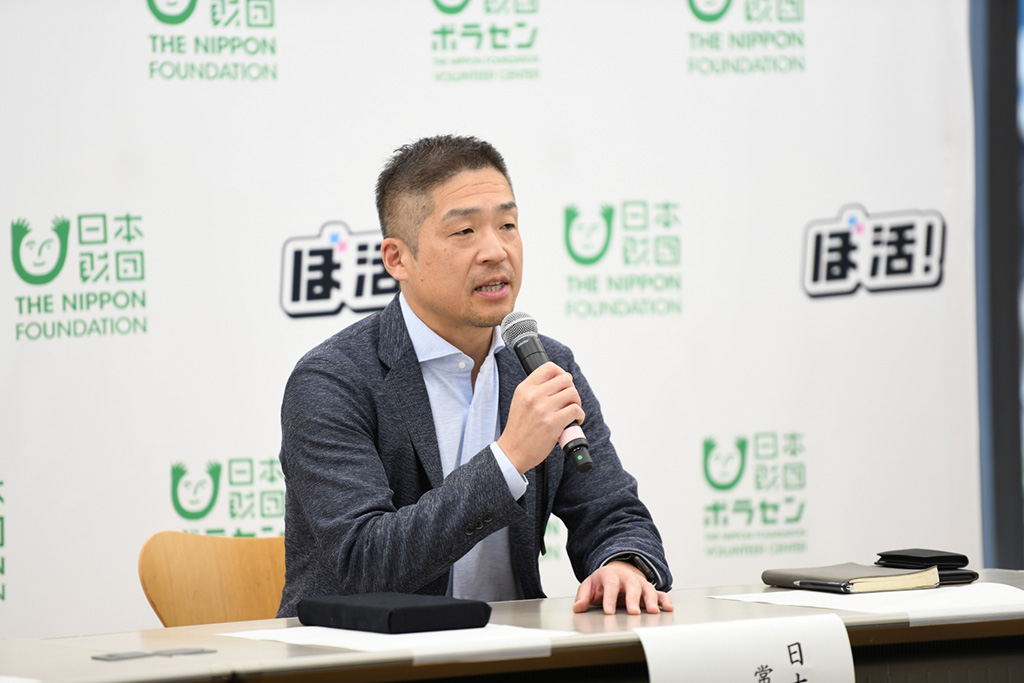
Group 1: Rin Ueda (Hyogo Prefecture; 2nd year student at the University of Hyogo)
My strongest memory from my volunteer activities is when I went to the temporary evacuation center on my last day there, and a young girl I had often played with took hold of my hand and would not let go, and burst into tears. I was happy to have been able to give her even a little strength, but at the same time I thought that I could have helped more people if I could speak their language and had specialist knowledge and skills. I am currently studying nursing, and hope to become a nurse in the future. I want to spend the rest of my time at university acquiring those kinds of specialist knowledge and skills, and improving my language skills as well. I hope to acquire many skills and become able to help people by providing medical and nursing care to many people who need help.
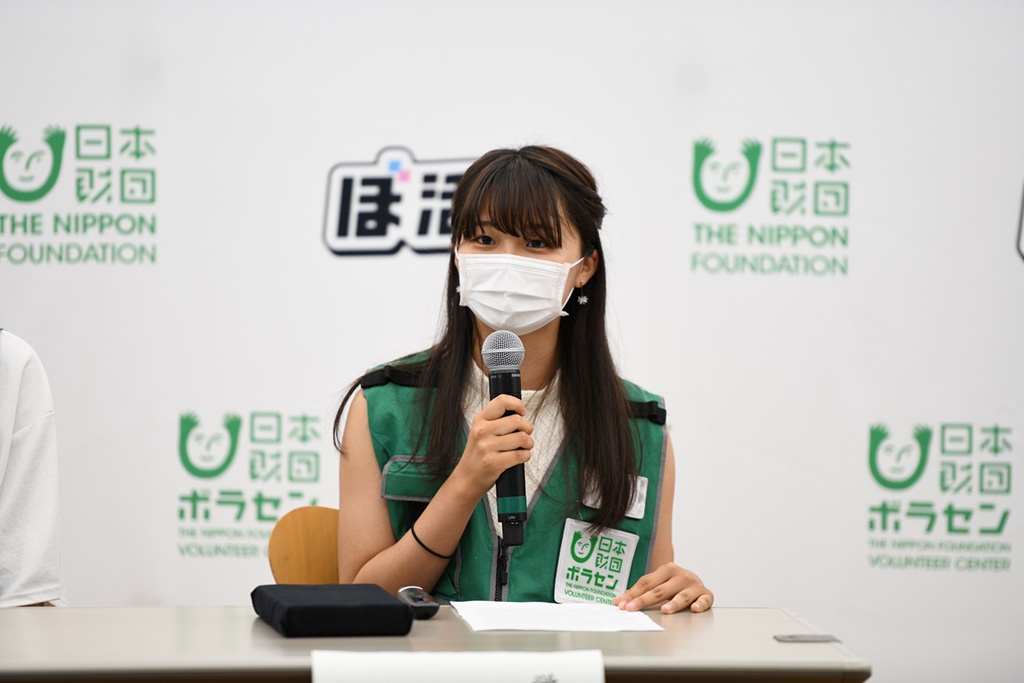
Group 1: Taisei Onda (Tochigi Prefecture; 4th year student at Sophia University)
Being able to respond in Russian is what I remember in particular about my activities at the temporary evacuation center. In many cases, I used Russian more than English. To be honest, there were times when I thought I could be of more help if my Russian were better. At the same time, these situations encouraged me to put more effort into my Russian language studies. I have also created a website for evacuees coming to Japan, and now I want to make the site more assertive and less passive. I also think it is important to use social media to promote this program, and to share the experiences of the participants after they return.
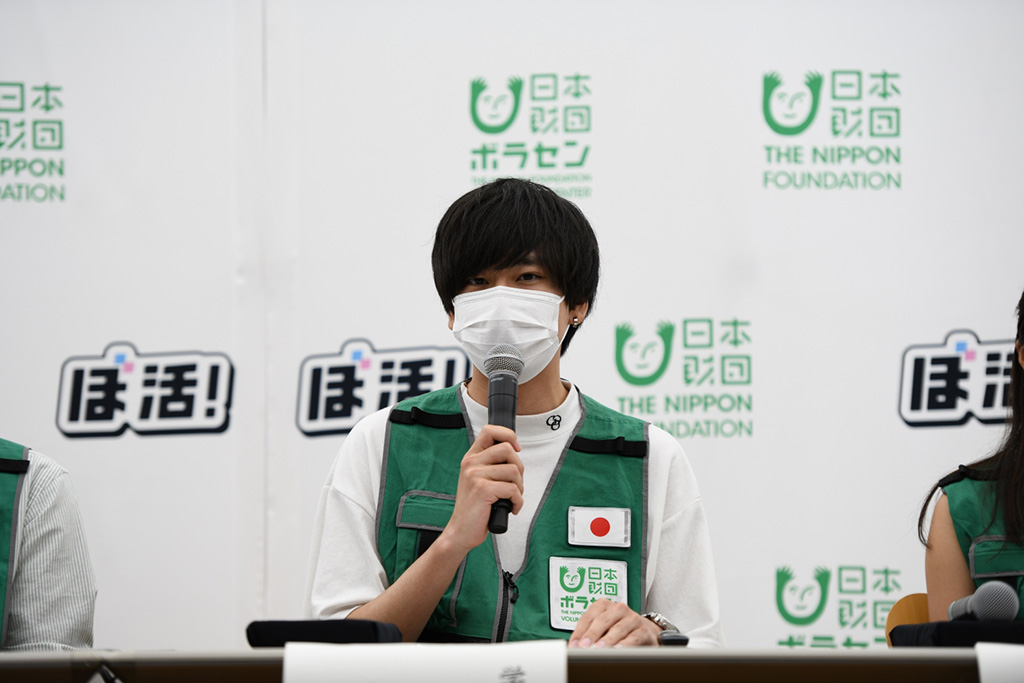
Group 2: Ryusei Komatsu (Tokyo; 4th year student at Meiji University)
My activities made me think about the difference between “consideration” and “favorable treatment” in volunteer activities. At the temporary evacuation center, the minimum required water, food, donated clothing, and other items were available, but this did not mean that all of the evacuees’ requests could be met. At times, we had to clearly say “No.” I learned that the most important thing in having an equal relationship between evacuees and volunteers is for volunteers to have empathy, rather than sympathy, toward the evacuees. I am convinced that to support the evacuees in the true sense, we must constantly strive to empathize from their perspective and provide consideration, rather than preferential treatment.
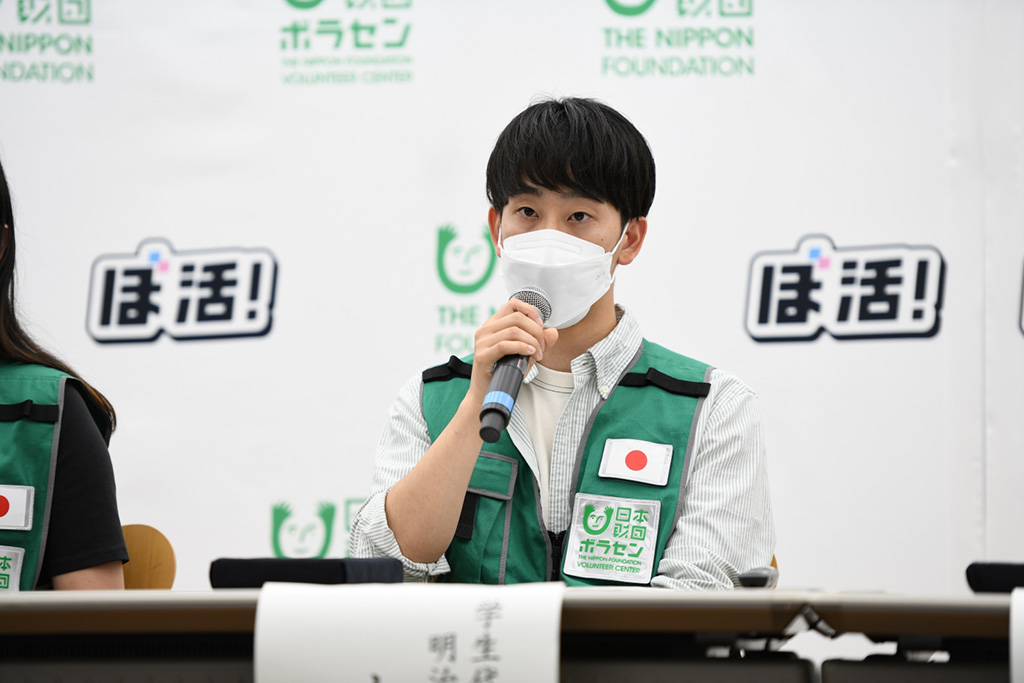
Group 2: Natsuki Nagahara (Aichi Prefecture; 4th year student at Waseda University)
My activities showed me firsthand both the dark side and the bright side of humanity. By experiencing these dark aspects and bright aspects, I learned about the possibilities that exist when people relate to and support one another. I believe this is essential for the creation of a society in which no one is left behind. This is why I will treasure the bonds I made with Ukrainian people and other volunteers during my two weeks there, and I hope that this will lead to other volunteer opportunities. From mid-August, I will spend a year studying in Sweden, which is close to Poland. I hope that I will be able to take part in more long-term activities.
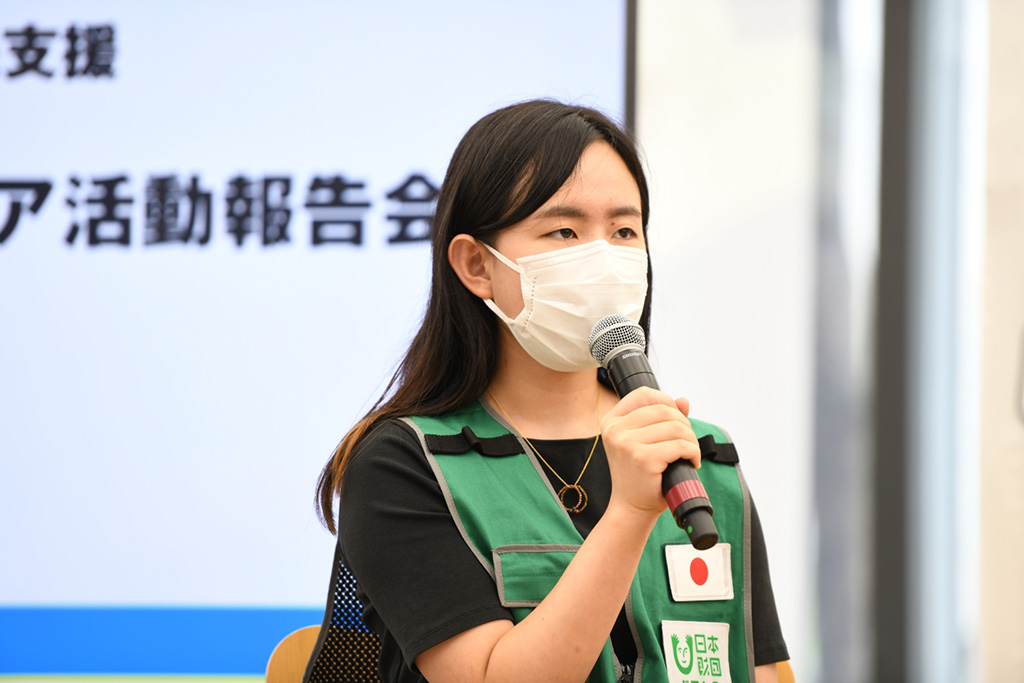
Related News
Related Link
Contact
Public Relations Team
The Nippon Foundation
- Email: cc@ps.nippon-foundation.or.jp



